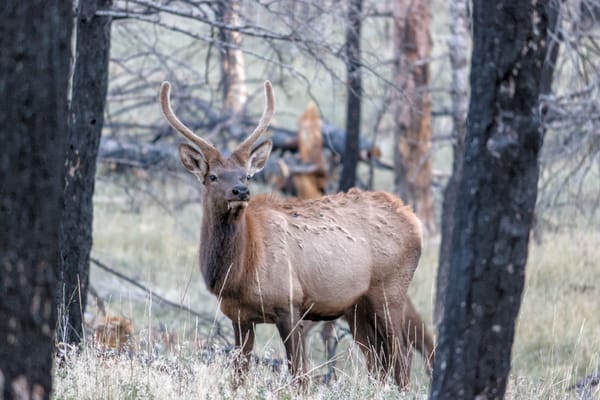Knowledge Sharing Culture Mapping

Knowledge sharing values lived out as habits. How individuals and teams practice knowledge sharing emerges from the values and culture embraced by those individuals. Rules, processes, and expectations succeed or fail based on the energy embodied in the culture. What is the knowledge sharing culture of your team or organization? The following activities may help illuminate the root of your knowledge sharing culture.
You can select a subset of activities from the menu below: use the tools that will aid your group (and try out the other activities at a later date). Modify the suggestions to suit your needs. Copy/paste the prompts into your own communication channel: survey, presentation, worksheet, etc.
Desired Outcomes
Through an iterative, collaborative process exploring the culture of knowledge sharing, your curiosity will likely achieve the following outcomes.
- Shared understanding of the current state of values and habits related to knowledge sharing among a group of people.
- Identify misalignment of stated values and actual, contradictory habits in the knowledge sharing ecosystem.
- Stretch Goal: articulate a shared set of knowledge sharing values and resulting habits supporting those values.
Steps
- Determine the population boundaries. Who is the main group of people in view.
- Define what the group means by "knowledge." Generate a list of named examples.
- Articulate clear, achievable desired outcomes.
- Select activities from the menu of options below.
- Identify the facilitator of the chosen activities.
- Complete the activities with resulting outputs.
- Reflect on the achieved accomplishments in light of desired outcomes and engage in another round of activities (repeat or new), as warranted.
Activity Templates Menu
- Survey group using an electronic poll or survey tool. See suggested prompts below.
- One-on-one interviews with individuals. See suggested prompts below, along with the survey prompts as possible additions.
- Facilitated group discussion. Prompts below. Also, consider including prompts from survey and interview templates.
- Role-play real world scenarios of knowledge sharing with group. Suggested prompts below. Each key stakeholder needs representation. Debrief.
- Diagram the components of the current state of the knowledge sharing ecosystem: People, Information, Habits, Resource Investments, Consequences, Results. Use a digital diagramming or whiteboard tool (e.g., draw.io).
- Ask individuals to independently create a diagram.
- Create a single diagram as a collaborative, real-time exercise.
- Diagram a desired state of knowledge sharing.
- Craft a Knowledge Sharing Charter.
Activity Templates
Survey Prompts
Setup the Survey:
- Determine anonymity or signed responses. Size of the group, existing culture of honest sharing, and intention to follow up with an individual respondent impacts the decision.
- Determine who will evaluate responses.
- Determine extent of open-ended questions needing evaluation and summarizing.
Parameters and definitions text for respondents: non-secret or non-private information and knowledge in the scope of this survey. Include the definition of "knowledge" generated by the group (from the Steps section above).
Possible Survey Questions:
How much do you agree with... (strongly disagree, disagree, neutral, agree, strongly agree):
- I habitually share knowledge with my team
- I habitually share knowledge with the entire organization
- Our organization routinely exhibits "open by default" practices
- The technological infrastructure for openly sharing knowledge across the organization is available to all staff
- My manager encourages active sharing of knowledge in our team
- I desire a deeper culture of knowledge sharing across our organization
Interview Prompts
- Describe the value your team places on knowledge sharing. Then, provide examples.
- When you are seeking information and knowledge, what people and what technological systems do you engage?
- What does the phrase "open by default" mean to you? How do you put into practice the values underlying that phrase?
- What is one small, reasonable next step you can take to more openly share your knowledge with your team? With the organization?
Group Discussion Prompts
- When asked by a colleague for information or knowledge, how do you typically respond? How do others respond when you approach them? To what extend do participants have a shared agreement on this topic?
- How do senior leaders in the organization model a knowledge-sharing culture?
- Brainstorm a set of micro-habits conducive for open knowledge sharing across the organization.
Role Play Scenario Prompts
- Diagram the lifecycle of key organizational knowledge assets in general: annual report, research study, good practice document, meeting notes, decision log, social media post, presentation to an external partner, funding proposal, quarterly financials, etc. Identify People, Information, and Habits. See above on diagramming suggestions.
- Diagram the lifecycle of a specific knowledge asset from conceptualizing to sharing.
- Role play contexts where informal knowledge sharing among people (digitally mediated or not) occurs. Select a scenario where key decisions are made based on the knowledge shared. Identify the key people, the knowledge characteristics, and the habits leading up to the decision.
This work is licensed under Creative Commons Attribution-ShareAlike 4.0 International




